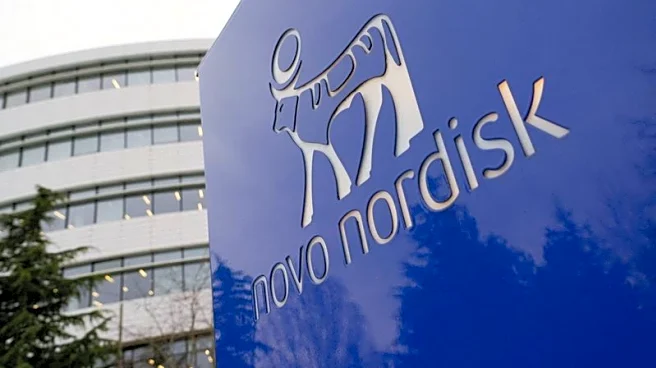What is the story about?
What's Happening?
This year's open enrollment season for employer-based health insurance is marked by a significant increase in health care costs, the steepest in over a decade. Employers are anticipating an average 9% rise in medical plan costs, prompting a reevaluation of strategies to manage these expenses. Traditionally, employers have shifted costs to employees through higher premiums, copays, and deductibles. However, with costs reaching unprecedented levels, there is a renewed focus on shared responsibility, encouraging employees to actively participate in managing expenses and improving health outcomes. New plan designs are being tested, including narrower networks and open access models, which require healthcare navigation support. Additionally, preventive care and eligibility rules are being linked to proactive health behaviors, such as annual primary care visits.
Why It's Important?
The rising health care costs during open enrollment have significant implications for both employers and employees. Employers are challenged to balance affordability and sustainability while ensuring transparency in their health benefits offerings. Employees, on the other hand, may face increased financial burdens due to higher premiums and new plan requirements. This situation underscores the importance of effective communication strategies tailored to a diverse workforce, which can help reduce anxiety and build trust. Employers who successfully navigate these changes can strengthen employee engagement and trust, ultimately leading to better enrollment decisions and health outcomes.
What's Next?
Employers are expected to continue exploring innovative approaches to manage rising health care costs. This includes implementing phased communication strategies to ensure employees understand the changes and their implications. Executive briefings, manager previews, and employee communications are crucial steps in this process. Transparency and empathy will remain central to these efforts, as employees may not welcome every change but are more likely to respect the process when the rationale is clear and thoughtfully delivered.
Beyond the Headlines
The shift towards shared responsibility in health care costs may lead to long-term changes in how health benefits are structured and communicated. Employers may increasingly tie preferred pricing to proactive health behaviors, potentially influencing employee lifestyle choices. This could have broader implications for public health and wellness initiatives, as organizations seek to incentivize healthier behaviors to control costs.
















